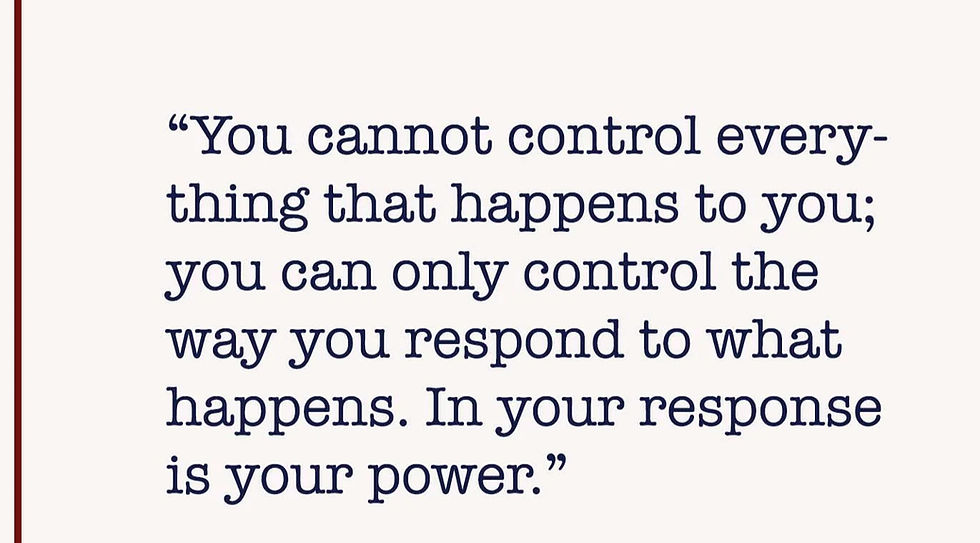Resolving conflict
- gurteshwarsandhu31
- May 31, 2024
- 3 min read

Dialectical Behavior Therapy (DBT) emphasizes several key skills for interpersonal effectiveness, including addressing conflicts in an assertive yet caring manner. It involves expressing opinions, emotions, and needs clearly, honestly, and respectfully . This approach encourages individuals to utilize effective communication skills, such as "I statements," which focus on expressing one's own feelings, thoughts, and needs without blaming or judging the other person . Furthermore, healthy communication in DBT entails being aware of one's own needs and the ability to articulate them in an understandable way while also demonstrating a desire to understand the other person’s perspective and invest in a continued relationship .
Strategies for Successful Conflict Resolution
1. Stay Descriptive: Utilize descriptive language to name the facts and avoid judgmental statements. This helps avoid falling into the trap of making accusatory statements, such as "You always" or "You make me feel." For example, employing more effective descriptive language could involve saying, “When I come home from work, I am aware that you want to talk with me about your day” .
2. Name Your Feelings: Openly talk about feelings instead of assuming that the other person knows how you feel. For instance, expressing, “I am tired when I come home, and it is hard for me to connect right away,” can contribute to clearer communication .
3. Knowing What You Want: It is important to be in tune with what you want in a relationship. This awareness may arise from a sense of yearning or discomfort, and the key lies in paying attention to these feelings and finding a way to express them clearly .
4. Asking for What You Want: Express your needs clearly and explicitly; avoid assuming that the other person can read your mind. Request what you need in a way that protects the relationship. For example, stating, “I would like to take 15 minutes after getting home to settle down after work. Then I can give you my full attention” is a constructive way to ask for behavioural changes.
5. Negotiating Conflicting Wants: Approach negotiation with a commitment to seeking compromise and understanding that each person’s needs are valid. Addressing conflicting needs may require a willingness to compromise to ensure that each person's concerns are addressed .
Ask What They Need: Demonstrating care by inquiring about the other person's needs and wants is valuable. It is crucial to summarize and repeat back their needs to ensure a clear understanding of their perspective. For instance, saying, “I hear that you want to connect with me at the end of the day. Is that correct?” aids in clarifying the other person's needs and fostering effective communication.
Saying No in a Relationship
Limp, Powerless Style: This approach to saying no may lead to being overruled, resulting in feelings of being controlled and resentful, which can undermine relationships.
Hard-Edged, Aggressive Style: Expressing a negative response in an aggressive manner can alienate people and create tension, ultimately impacting the dynamics of the relationship negatively.
Assertive Style: Using an assertive style to say no involves validating the other person’s needs while setting firm boundaries. This approach respects the desires of the other person while also prioritizing one's own needs, contributing to healthy and respectful communication within the relationship.
Acting According to Your Values
Self-Respect and Respect for Others: Being passive or aggressive in a relationship can diminish both your self-respect and that of others, as it often results in someone's needs and feelings being ignored.
Clarity and Self-Reflection: It is crucial to be clear about the kind of relationships you want to cultivate and act according to your values to shape the nature of your relationships positively.
Setting Positive Intentions and Values: Establishing positive intentions and values for each of your relationships can significantly impact their success, guiding your actions and interactions with others towards achieving your ideal relationship dynamics.
Give and Take
Negotiation of Needs: Healthy relationships involve the negotiation of both parties’ needs, emphasizing the importance of attending to the other person's needs while advocating for your own requests in a balanced manner.
Backing Off as Needed
Managing Emotions: Taking a step back when feeling rejected or defensive is important to regain composure and approach the situation constructively, highlighting the significance of effective communication and managing emotional responses during conflicts.
Maintaining Healthy Interpersonal Relationships
Clear, Fair, and Kind Communication: Clear, fair, and kind communication is crucial for supporting healthy interpersonal relationships. Avoiding disrespectful behavior, and name-calling, and instead striving to be respectful and truthful fosters an environment of mutual understanding and harmony.
Admitting Fault and Apologizing: Being willing to admit and apologize for hurtful actions can significantly contribute to resolving conflicts and soothing hurt feelings, promoting emotional healing and understanding within the relationship.
These strategies align with the principles of DBT, emphasizing respectful and effective communication while considering the perspectives and needs of both individuals .
At your Service
with Love and Gratitude
Kiran



Comments